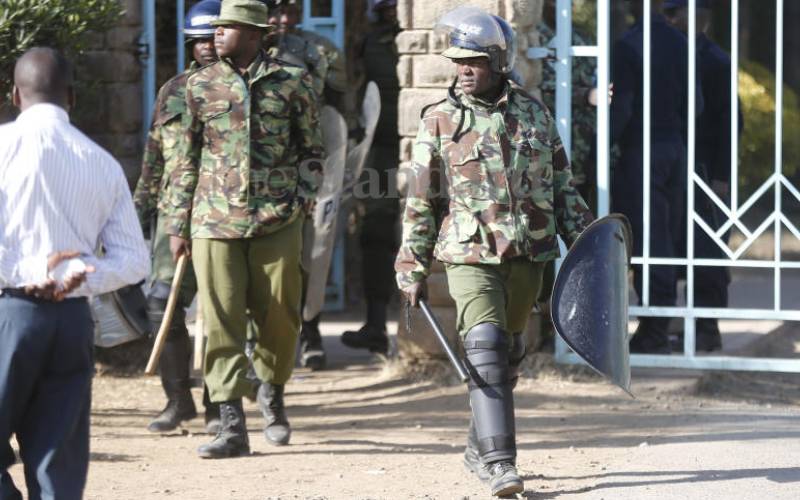×
The Standard e-Paper
Home To Bold Columnists

Police officers stand guard at St Marys Mission Hospital, 2018. [Kipsang Joseph, Standard]
Dr William Charles Fryda landed in Kenya in 1991 as a haematologist and a priest. His mission was to treat the sick and foster peace in some of Kenya’s restive regions.







